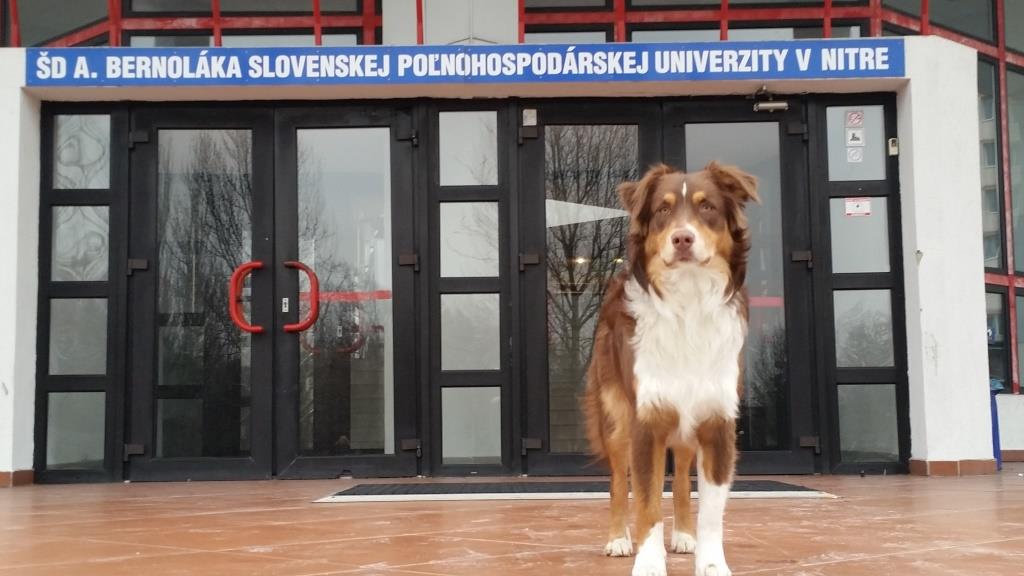This was the CASEE Winter School 2016
The CASEE winter school 2016 on the topic of
"Biotechnology and Food Sciences"
was held at the Slovak University of Agriculture, Nitra, Slovakia, Faculty of biotechnology and food sciences from 15th until 29th of February 2016.
The Slovak University of Agriculture in cooperation with CASEE partner universities organized the International Winter School entitled "Biotechnology and Food Sciences" which was held from 15 to 29 February 2016, in Nitra. The winter school activities were part of the International Joint Degree Programme - Danube AgriFood Master.
The target group for attending the winter school were final year undergraduate students and graduate and postgraduate students from life science disciplines. The main aim of the winter school was to improve the mobility of students and multilateral cooperation between higher education institutions in the Danube region on the development of agriculture, food production and technology and sustainable development with an emphasis on biotechnology.
The winter school attended 15 students from Austria, Greece, Croatia, Italy, Germany, Hungary, Macedonia, Poland, Philippines, Serbia and Thailand. Besides this intercultural student group almost two dozen lecturers from the different partner universities and associated partners taught in Nitra. Upon successful completion of the winter school participants have earned 4 ECTS credits.
Overview
This International Winter School empowers students to take part in forming the sustainable agriculture and food technology of the future. They gain knowledge and grow their skill set with regard to the intercultural and social aspects, anthropic landscape and natural resources of sustainability in agriculture and the food industry in the Danube region. Understanding the intercultural and regional aspects of sustainable agriculture and food technology is crucial in finding viable pathways to long-term success in Central and Eastern European agriculture.
The main focus of the programme will be on self-development in a multicultural European region and also get the students from various countries and continents to interconnect. At the end of the winter school, students should be able to identify some of their own culturally-biased assumptions and behaviour, and begin to objectively address the benefits of multiculturalism for regional agriculture and food industry.
Course Content and Aims
Intercultural aspects, sustainable development, climate change and protection, food security, technology and quality, sustainable food production, biotechnology and sustainable energy make up the core content of the winter school programme. The general aims of the course are:
- to develop a good understanding of biotechnology and food sciences with a special emphasis on the Danube region, and
- to improve student mobility and multilateral cooperation between higher education institutions in the area of agriculture, resource management, food production and technology and sustainable development
Partners
The International Summer School is led by university lecturers from different countries. Several phases of group work, short presentations, discussion, and problem solving sessions give a well-rounded learning experience.
- The Slovak Agricultural University in Nitra, Nitra, Slovakia
- University of Zagreb Faculty of Agriculture, Zagreb, Croatia
- University of Natural Resources and Life Sciences, Vienna (BOKU), Austria
- Czech University of Life Sciences, Prague, Prague, Czech Republic
- Szent Istvan University, Gödöllő, Hungary
- University of Novi Sad, Novi Sad, Serbia
- USAMVBT - Banat University Agricultural Sciences and Veterinary Medicine Timişoara, Timişoara, Romania
- Warsaw University of Life Sciences, Poland
Programme
- Introduction and Guidelines
- Slovakian Gastronomy
- Food marketing
- Visiting University campus and Faculty of biotechnolgy and food sciences laboratory
- Using of pumpkin cake in broiler nutrition
- Quality of fish and shellfish products
- New biopolymer based microcapsules for plant protection/nutrition agents controlled release
- Microbial diversity of traditional food from the Danube region - alternative solutions to ensure food quality and safety
- Anthropogenic impact on the landscape
- Field trip
- Food quality
- Food and its cultural context
- Natural food additives
- Food packaging and environment
- On selecting the best food supplier, GIS+AHP supported evaluation of land suitability for irrigation
- Decision making tools for assessing food chains
- Bacterial contamination of food, microorganisms in biotechnology
- Presentation of the Danube AgriFood Master curriculum
- Mycotoxins and their producers in food
- Microbiological quality of wine
- Antibiotic resistance of bacteria isolated from food
- Cultural programme
Field Trip
As a part of the winter school following field trips will be organised:
- field trip to agricultural production site
- tour to the old town of Nitra
Website
http://www.fbp.uniag.sk/en/news-and-events/items/international-winter-school-2123/


